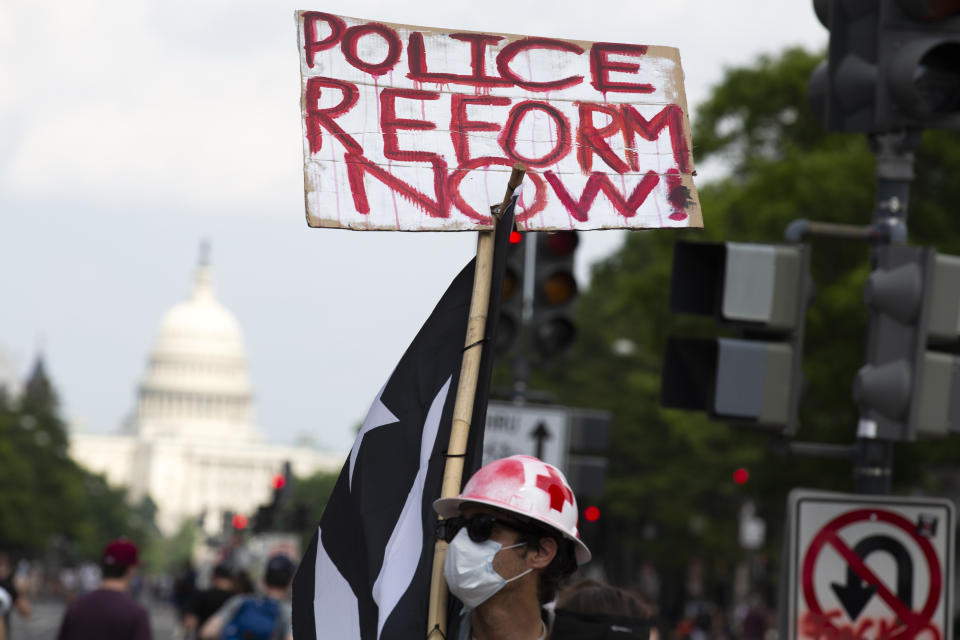Momentum builds to end qualified immunity for police officers in the wake of George Floyd's killing
At the top of the list of law enforcement reforms being considered in the wake of the killing of African-American George Floyd by Minneapolis police is ending qualified immunity, the doctrine that protects officers from being held personally liable for using excessive force so long as “clearly established” laws were not broken.
The qualified immunity statute was enacted by Congress in 1871, and it has served as the legal bedrock that prevents juries from being allowed to consider awarding damages in lawsuits brought against officers accused of using excessive force. The logic behind the statute is to protect officers whose daily job puts them at heightened risk of being sued because it requires split-second decisions. All that a police officer needs to show to invoke a defense of qualified immunity is that he or she believed the conduct to be lawful at the time it was carried out.
Critics of qualified immunity say the statute means that cops who commit crimes against citizens have an easy out, and point to dozens of unsuccessful cases brought by African-American victims.
While the Supreme Court’s 2009 decision in Pearson v. Callahan strengthened the qualified immunity defense used by police officers, eight new cases before the court could see a different outcome. Justices Sonia Sotomayor and Clarence Thomas have recently been critical of qualified immunity.

On Tuesday, a federal appeals court denied legal immunity for four West Virginia police officers who in 2013 shot and killed Wayne Jones, a homeless African-American man.
“Although we recognize that our police officers are often asked to make split-second decisions, we expect them to do so with respect for the dignity and worth of black lives,” Judge Henry Floyd wrote in the opinion. “To award qualified immunity at the summary judgment stage in this case would signal absolute immunity for fear-based use of deadly force, which we cannot accept.”
Since Floyd’s killing, calls to abolish the statute have also been gaining traction in Congress. Last week, Reps. Justin Amash, L-Mich., and Ayanna Pressley, D-Mass., introduced the Ending Qualified Immunity Act.
“Qualified immunity protects police and other officials from consequences even for horrific rights abuses,” Amash said. “It prevents accountability for the ‘bad apples’ and undermines the public’s faith in law enforcement.”
“There can be no justice without healing and accountability, and there can be no true accountability with qualified immunity,” Pressley said. “It’s past time to end qualified immunity, and that’s exactly what this bill does.”
On Wednesday, more than 1,400 former athletes, coaches and professional sports executives signed a letter to Congress in support of a bill that would end qualified immunity for police officers and government officials.
“The time for debate about the unchecked authority of the police is over; it is now time for change,” the letter stated.
_____
Read more from Yahoo News:



